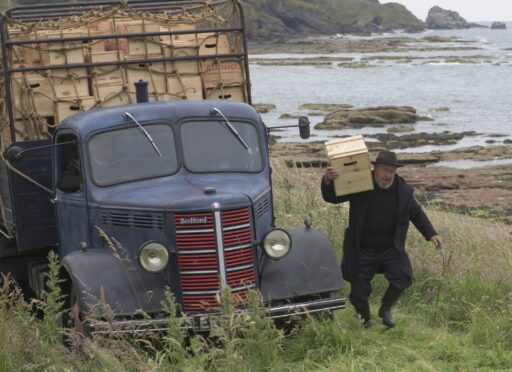
Industry insiders want to know why an art installation featuring ‘non-simulated’ sex got £110,000 of public money from Creative Scotland yet the reboot of iconic film Whisky Galore! got nothing.
They are calling for a “root and branch” review of the public body and off-shoot Screen Scotland, and greater scrutiny over exactly who gets a share of their £90 million pot of public money.
Following our major expose of Creative Scotland, applicants are now facing further delays in funding as the organisation – headed by £185,000-a-year chief Iain Munro – is undergoing a review of their “Open Fund For Individuals” scheme.
It faces the challenge of clawing back cash from director Leonie Rae Gasson to make the controversial REIN.
In emails to applicants, Creative Scotland is now warning there will be a “short, temporary extension to existing timelines to enable additional assurance on applications that are recommended for OFFI funding.
“Our review will include the decision-making process at application stage, terms of contract once a project is awarded funding, and subsequent project monitoring.”
Film-makers’ experiences
As Scottish Culture Secretary Angus Robertson awaits answers from the organisation, which now claims REIN director Gasson made “changes” they did not know about, film-makers have revealed their experiences.
The man who masterminded the reboot of the 1949 Ealing classic Whisky Galore!, Iain Maclean, said: “I came away with no funding. It was disappointing as I had gone out of my way to ensure such an iconic film was all about Scotland.
“Luckily, I had an amazing investor, Peter Drayne, from Ireland, who came away from the Creative Scotland meeting shaking his head in disbelief. He funded the film and I remained faithful to my promise to use all Scottish talent.
“I think Creative Scotland eventually handed me around £1,000 towards the premiere which they more than made back by having their name plastered over our advertising.
“How many films have Creative Scotland included in the credits. That tells you everything you need to know.”
Multi-award-winning and Bafta-nominated film-maker Ryan Hendrick, who made Mercy Falls, Perfect Strangers, Sundown and Lost At Christmas, said the funding process was virtually impossible to navigate, and while things had improved since changes of senior staff in recent years, Creative Scotland were still “not doing enough to support local talent.”
He said: “The Republic of Ireland, Northern Ireland, England, and Wales have all got the right approach. They back local talent which is why they all have sustainable industries.
“Creative Scotland, however, appear to be obsessed with attracting Hollywood film companies which certainly don’t need our money.
“Hollywood comes and hires people here which is a nice little buffer at the time. But that is not doing anything to create a sustainable Scottish industry.
“The whole Creative Scotland issue is complex. There can’t be funding for every single project. But a whole lot more should be done to nurture and support homegrown talent.”
‘Overdue scrutiny’
Gail Gyi, who has run acting agencies Ethnika and Gaelforce for more than 20 years, said: “What is truly needed is a root and branch reform of the whole system, and a far greater scrutiny process so the public can be assured of accountability when dreadful decisions are made, such as exactly who is responsible for agreeing to fund a project like REIN.
“For many years there has been little opportunity for working-class talent in this industry.
“It remains clique-ridden and down to ‘who you know’.
“I was outraged that £1 million funding was given to Outlaw King, a film made for streaming giant Netflix which boasts profits of billions.
“I’d love to see what projects like that really do bring to Scotland in terms of value for money?
“I’ve not stopped cheering since the Sunday Post broke the REIN story because, at last, this has brought a level of scrutiny to Creative Scotland that is very much long overdue.”
Creative Scotland said: “We are reviewing the process for our Open Fund for Individuals to identify where improvements can be made.
“In the first instance, there will be a short, temporary extension to existing timelines to enable additional assurance on applications that are recommended for OFFI funding.
“We cannot comment further on REIN as this is an ongoing process.”

Enjoy the convenience of having The Sunday Post delivered as a digital ePaper straight to your smartphone, tablet or computer.
Subscribe for only £5.49 a month and enjoy all the benefits of the printed paper as a digital replica.
Subscribe